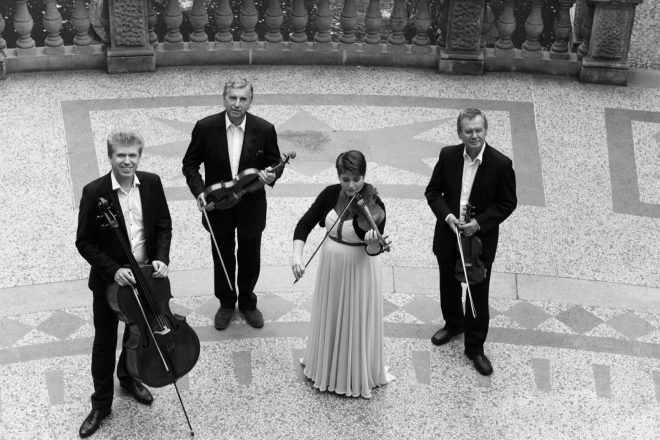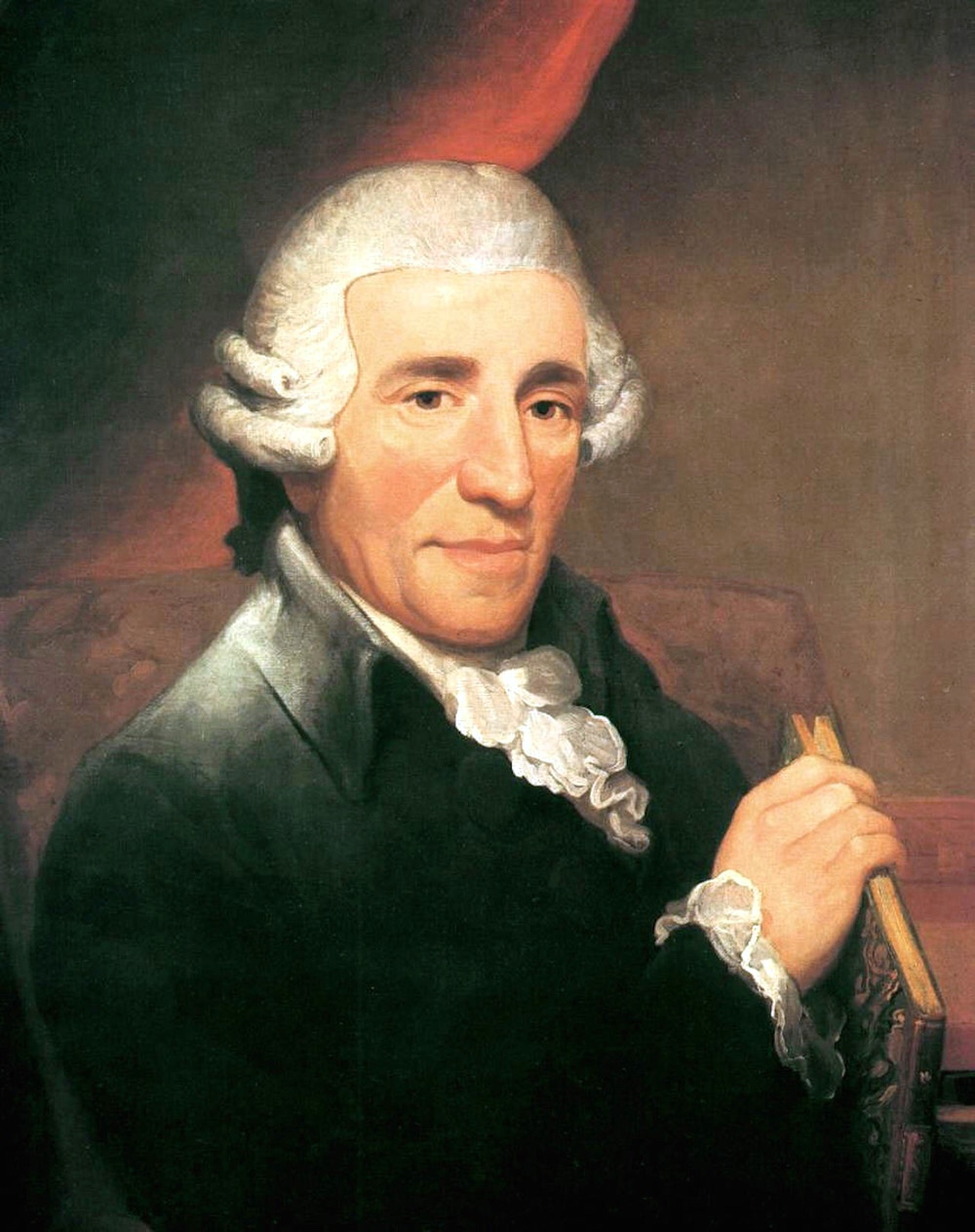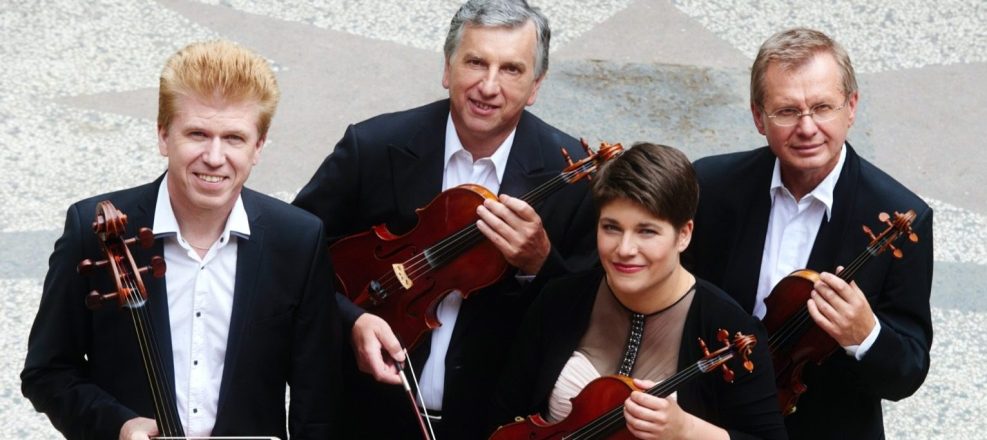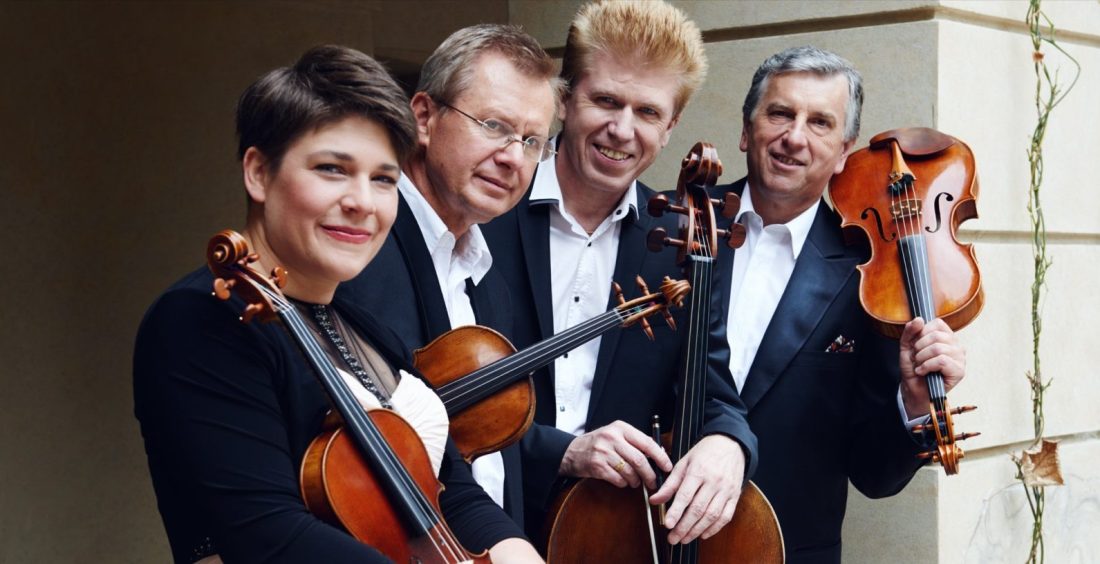Pražák Quartet
The concert will take place without an audience in the hall.
You can watch the live broadcast of the concert as well as two dozen others on our website for free.
Programme
- Jindřich Feld: String Quartet No. 4
- Joseph Haydn: Joseph Haydn – String Quartet No. 67 in F major Op. 77 No. 2
- Igor Stravinsky: Double Canon (Raoul Dufy in Memoriam)
- Antonín Dvořák: String Quartet No. 14 in A flat major Op. 105
Performers
- Pražák Quartet
Watch Now!
“To appear at the Prague Spring International Music Festival and, moreover, to perform in the Rudolfinum’s Dvořák Hall, makes for a wonderful experience for any musician. In view of the fact that the Pražák Quartet, after a career of almost fifty years, will be playing at this festival for the last time, we decided to choose a repertoire that incorporates late works by world composers,” states Pražák Quartet cellist Michal Kaňka. The 2020-21 season will be the last for the ensemble, who have announced they will be stepping down. “At the festival the Pražáks will bid farewell to the public with masterpieces by key figures in the history of quartet writing – Josef Haydn’s second Lobkowitz quartet and the last string quartet by Antonín Dvořák,” says Programme Director Josef Třeštík. “The programme will also include what some might regard as a surprisingly modernistic work for its time, the Fourth Quartet by Jindřich Feld, and a late miniature by Igor Stravinsky, the 50th anniversary of whose death falls in the spring of 2021; we will naturally be marking this anniversary throughout the 76th edition of the festival.”

Pražák Quartet
The Pražák Quartet is regarded by the critics as one of the most important representatives of Czech chamber music on the international scene. “They are unquestionably one of the ensembles that head the field in Czech quartet interpretation,” wrote reviewer Eva Vítová in Harmonie magazine. The ensemble was formed at the Prague Conservatoire in the early 1970s, when four exceptionally talented young musicians and chamber music enthusiasts decided to get together. The quartet acquired experience from individual members of respected chamber ensembles of the day, specifically from Viktor Moučka (Vlach Quartet), Břetislav Novotný (leader, Prague String Quartet) and Antonín Kohout (Smetana Quartet). The Pražáks celebrated their first major success in 1978 after winning the prestigious Evian International Competition in France. They won the Prague Spring competition the following year, which paved the way towards international recognition. The quartet regularly appears in Europe, the United States, Japan and Australia.
During a career of nearly fifty years the ensemble has recorded around fifty compact discs (Praga Digitals), which contain the complete quartet oeuvre of Ludwig van Beethoven, Johannes Brahms, Franz Schubert, the composers of the Second Viennese School, and all the major quartet works by Czech composers. In 2018, after a period of twenty years and to mark the 100th anniversary of the founding of Czechoslovakia, the ensemble made a new recording of Bedřich Smetana’s string quartets which accompanied them on a tour to Japan and China, the Mostly Mozart festival at New York’s Lincoln Center, and also to venues across Europe (Amsterdam, London, Marseille, Geneva etc.). In October 2019 the Pražák Quartet launched the Czech Chamber Music Society’s new season and subsequently gave a series of concerts in Europe. The 2020/2021 season will see the ensemble performing Beethoven quartets, both as part of the regular concerts organised by the Czech Chamber Music Society, and also on another tour of Japan. This will be followed by concerts in Italy, France and Switzerland, and a major tour of the United States.
Programme note
The concert programme offers a cross-section of quartet writing from Classicism to the 20th century. It will open with String Quartet No. 4 by Jindřich Feld (1925-2007). “The eminent Czech composer Jindřich Feld would have celebrated his 96th birthday earlier this year,” states the ensemble’s cellist Michal Kaňka. “His fourth quartet, dedicated to the Vlach Quartet, is filled with dynamic contrasts and smart rhythms.” Feld had a special affinity with string instruments. Both his parents were professional violinists, thanks to which Feld had played the violin from his early childhood, taught by his father, the distinguished music teacher Jindřich Feld Snr. However, he soon began to take an interest in composition, which he studied as a main subject at the Prague Conservatoire under Emil Hlobil and later with Jaroslav Řídký at the Academy of Music. He also earned a doctorate under Jan Patočka, with degrees in philosophy, aesthetics and musicology. He began to draw attention with his compositions – initially based on traditional Czech and European models – in the 1950s, when his music was performed and published abroad. From the Sixties onwards his musical language incorporated modern compositional techniques (aleatoric approaches, serialism), as illustrated by his String Quartet No. 4 from 1965.


String Quartet No. 67 in F major Op. 77 No. 2 by Joseph Haydn (1732-1809) is a masterpiece of his late period. Known as the father of the string quartet, Haydn devoted himself to the genre all his life, approximately from 1750 to the year 1803, and without exaggeration we can state that he brought this genre – and the symphonic form – to stylistic perfection. The two quartets in opus 77 are among the composer’s last completed works of this kind. They were written in 1799 and were dedicated to Prince Lobkowitz, who had originally commissioned six quartets from him. The reason Haydn only wrote two of them was that he probably sensed the competition between himself and his pupil, young Ludwig van Beethoven, from whom Lobkowitz had also commissioned six quartets, in the autumn of 1798. This would have been Beethoven’s very first commission of its type; for Haydn it was the last. The ageing composer could not, and would not, compete with his pupil’s revolutionary Op. 18. It was a few years before he would embark upon his Op. 103, which remained unfinished.
Double Canon for string quartet “Raoul Dufy in Memoriam” by Igor Stravinsky (1882-1971) brings the listener back to the 20th century once more. The short dodecaphonic work originating in Venice in September 1959 was originally written as a souvenir piece in response to a request for an autograph. While it was initially intended for flute and clarinet, it was later expanded for string quartet and was premiered in New York in December of that year. The work lasts a little over a minute. The dedication to the painter Raoul Dufy is not a personal tribute since the two artists never met.
The concert will end with Antonín Dvořák (1841-1904) and his String Quartet No. 14 in A flat major Op. 105, which is likewise a masterpiece of its genre. Although the composer began the quartet in March 1895 shortly before his departure for the United States, it wasn’t completed until December of that year, once he had returned to Prague. The journey back to his native country proved demanding and Dvořák decided to interrupt his work and take a lengthy break of four months in order to rest after his two and a half years in America.
The first movement begins with a slow introduction, where the cello begins and is gradually joined by the other instruments repeating the main theme; the composer works with it in an ingenious way, as he does with the contrasting, highly rhythmical and playful subordinate theme. The second movement is described as one of Dvořák’s most inspiring scherzos, while the third movement is enchanting for its typical lyricism and wonderfully rich sound. The unconstrained fourth movement, despite its somewhat solemn introduction, is an explosion of joy with a strong resonance of folk music. “This work presents Dvořák in all his mastery,” states Michal Kaňka, who adds: “I’m really looking forward to seeing all of you who love chamber music, especially fans of the Pražák Quartet!”







